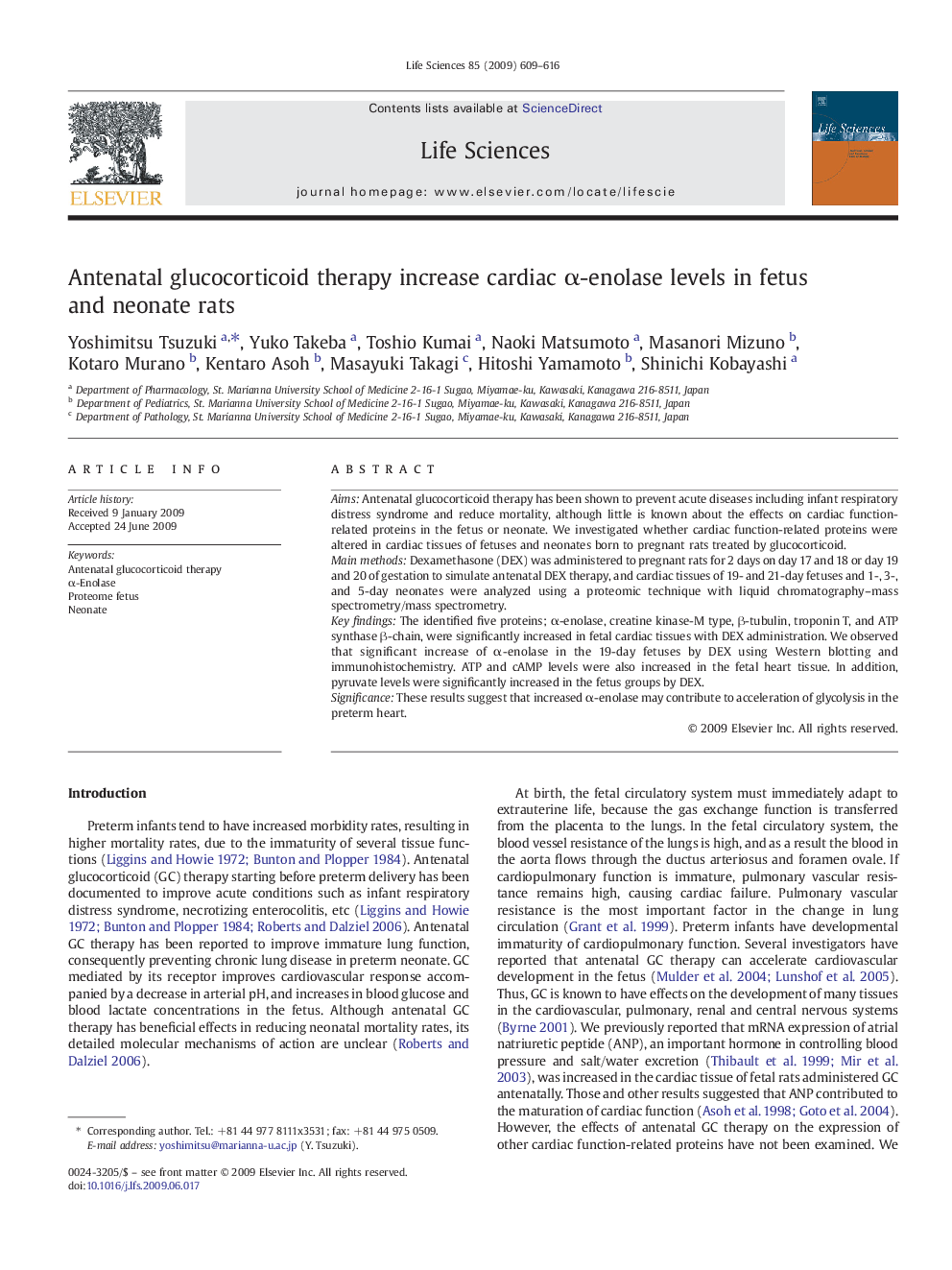| Article ID | Journal | Published Year | Pages | File Type |
|---|---|---|---|---|
| 2552265 | Life Sciences | 2009 | 8 Pages |
AimsAntenatal glucocorticoid therapy has been shown to prevent acute diseases including infant respiratory distress syndrome and reduce mortality, although little is known about the effects on cardiac function-related proteins in the fetus or neonate. We investigated whether cardiac function-related proteins were altered in cardiac tissues of fetuses and neonates born to pregnant rats treated by glucocorticoid.Main methodsDexamethasone (DEX) was administered to pregnant rats for 2 days on day 17 and 18 or day 19 and 20 of gestation to simulate antenatal DEX therapy, and cardiac tissues of 19- and 21-day fetuses and 1-, 3-, and 5-day neonates were analyzed using a proteomic technique with liquid chromatography–mass spectrometry/mass spectrometry.Key findingsThe identified five proteins; α-enolase, creatine kinase-M type, β-tubulin, troponin T, and ATP synthase β-chain, were significantly increased in fetal cardiac tissues with DEX administration. We observed that significant increase of α-enolase in the 19-day fetuses by DEX using Western blotting and immunohistochemistry. ATP and cAMP levels were also increased in the fetal heart tissue. In addition, pyruvate levels were significantly increased in the fetus groups by DEX.SignificanceThese results suggest that increased α-enolase may contribute to acceleration of glycolysis in the preterm heart.
